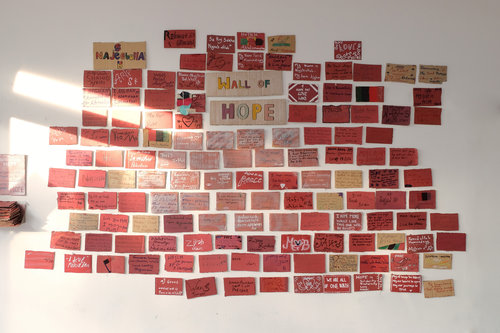FairPlanet.Support
| tags: | #Balkans, #Serbia, #Bosnia and Herzegovina, #refugee camps, #refugee crisis |
|---|---|
| located: | Bosnia and Herzegovina, Serbia |
| by: | Yair Oded |
The refugee crisis in The Balkans has been steadily worsening over the past few years, with tens of thousands of migrants now stuck in Serbia and Bosnia and Herzegovina as Europe has closed its borders.
An estimated 36,000 refugees have entered Bosnia and Herzegovina since last year, and are currently spread across various camps and cities in the country. With virtually no funding and support, the situation in Bosnian refugee camps deteriorates rapidly, and reports indicate that refugees there suffer from malnutrition, epidemics, lack of access to electricity and potable water, as well as crime. Those residing outside of camps experience harsh discrimination and are often subject to dehumanising treatment.
Collective Aid is a nonprofit organisation working to provide relief and support to refugees across Europe, with a particular focus on Serbia and Bosnia and Herzegovina. Collective Aid’s mission is to fill in the gaps left by governments and other aid organisations.
Collective Aid was established in 2017 in Serbia, in response to the growing refugee crisis in the country. Collective Aid volunteers began distributing meals and other items, such as clothes and blankets, to the thousands of refugees who were squatting across Belgrade and living on the streets.
Their operation rapidly expanded, and soon the group was distributing as many as 2,000 meals per day.
As Serbia started to take a more structural approach to handling the refugee crisis and began erecting camps and settlements, Collective Aid partnered with Oxfam Italia in an effort to cook meals at the Obrenovac Transit Center. “Between June 2017 and September 2018, we provided daily lunch for around 500-900 center residents,” the organisation states on its website.
In the summer of 2018, Collective Aid expanded its reach and began to volunteer with refugees in Bosnia and Herzegovina as well, where they initially provided meals and relief to refugees living on the streets of Sarajevo. When a new refugee camp opened in Sarajevo in October of that year, Collective Aid volunteers operated the camp kitchen, and until April 2019 distributed three meals per day to 700-800 refugees. The organisation also established its “Free Shop” in the camp, providing clean clothes to camp residents.
Collective Aid is run by a group of long-term volunteers who are supported throughout the year by short-term volunteers from across the world.
In addition to providing nutritious food and other essentials to refugees, the organisation also runs a growing number of activity programs, language classes, and workshops for refugees.
Visit the Collective Aid website to learn more about their work, pledge a donation, support their fundraising efforts, or apply to become a volunteer.
Image: Collective Aid website
By copying the embed code below, you agree to adhere to our republishing guidelines.
